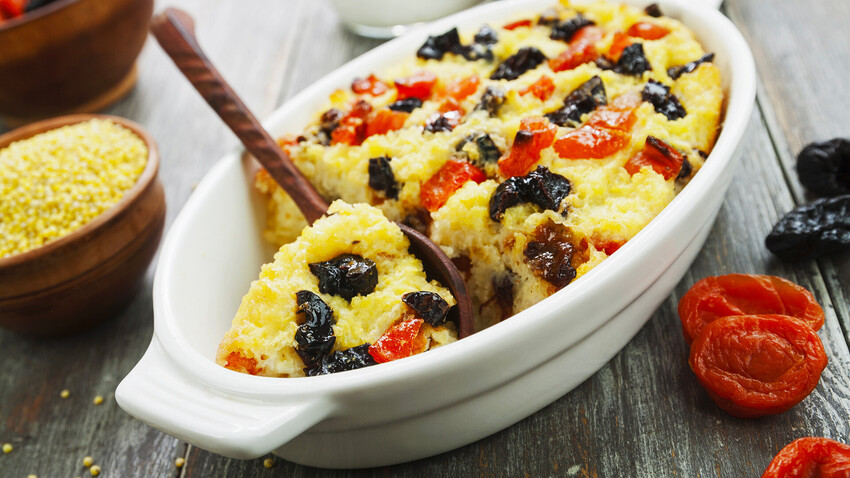
Prepare this 'pshennik' in advance for a convenient, ready breakfast option.
Minadezhda/Getty ImagesIn the rich variety of Russian cuisine, where hearty dishes and robust flavors reign supreme, pshennik stands out as a very special forgotten dish. Vladimir Dahl, the famous lexicographer, described it as a "steep porridge with milk and eggs."
At its core, pshennik is a combination of millet (psheno means millet in Russian), milk (or a mix of milk and water), and eggs (optional) that are lovingly baked to create a nutritious meal. Pshennik can be tailored to suit any taste, whether you prefer a salty version with stew, boiled meat, or a medley of vegetables, or a sweet dessert adorned with raisins, dried apricots, and prunes. Today, we’re going to bake this sweet version.
While festive Russian dishes are often associated with buckwheat or rice, nevertheless millet porridge occupies a time-honored place in Russian culinary tradition. Even the monks who lived in the fortified Solovetsky Monastery on the Solovetsky Islands in the White Sea savored this dish on the first day of Easter. Their feasts consisted of delicacies like salmon with sour cream, halibut cabbage soup, and pshennik. It's just what an exhausted monk needs after a long fast. And now you can also enjoy it.
Millet, the humble grain at the heart of pshennik, requires minimal care and grows without the need for harmful pesticides. It’s an excellent source of fiber, surpassing many other grains. Scientific studies have revealed that millet contains at least twice as much calcium as rice and is richer in iron. It significantly boosts the immune system, reducing cholesterol levels, and regulating blood sugar. Finally, millet is a gluten-free grain, making it a suitable choice for those with dietary restrictions.
When baked with dried fruits, pshennik is a delicious and nutritious dessert that will delight both kids and adults.
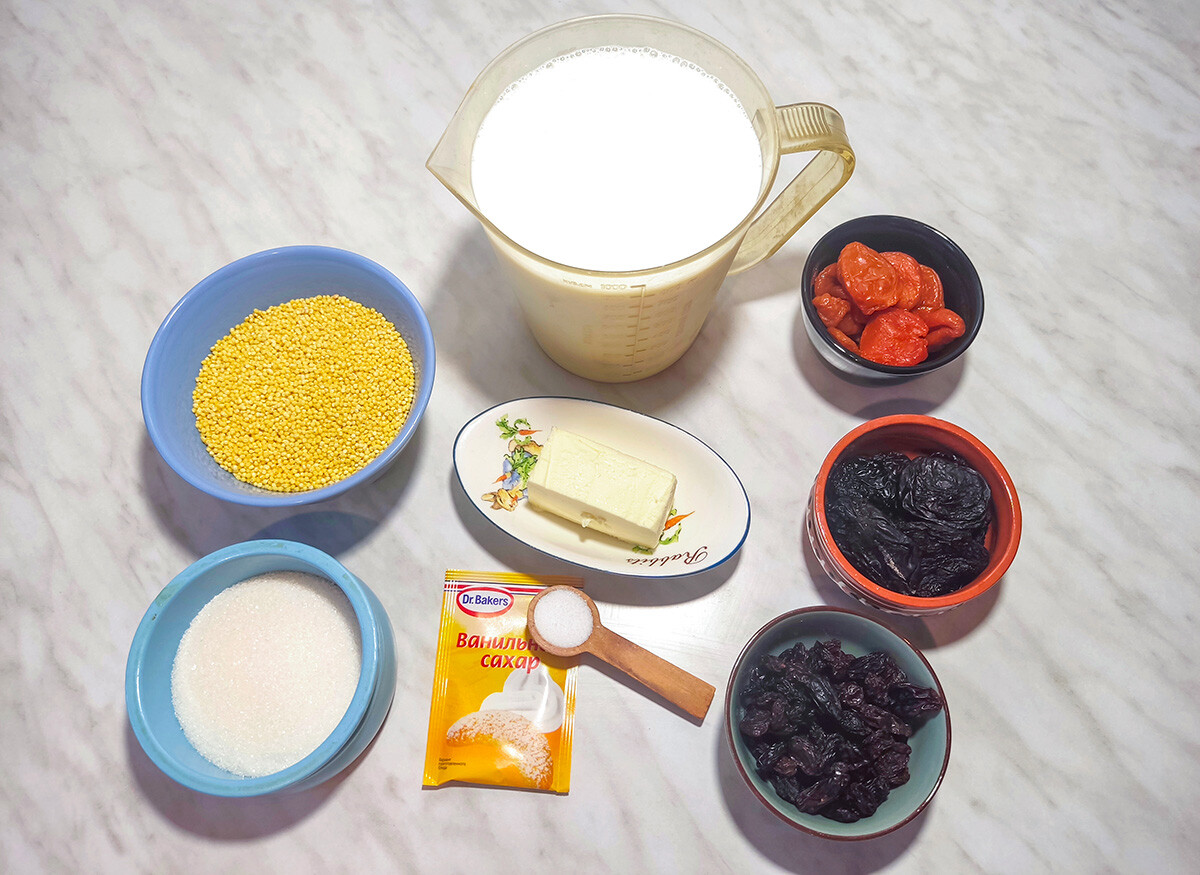
1. First, let’s prepare the millet. Sort and rinse it until the water runs clear. Pour boiling water over the millet and let it sit for 2-3 minutes to remove any bitterness. Drain the water and place the millet in a baking pan (approximately 20 cm in diameter).

2. Next, prepare the dried fruits. Pour hot water over the dried fruits and let soak for 5-10 minutes to soften. Then, rinse and drain.
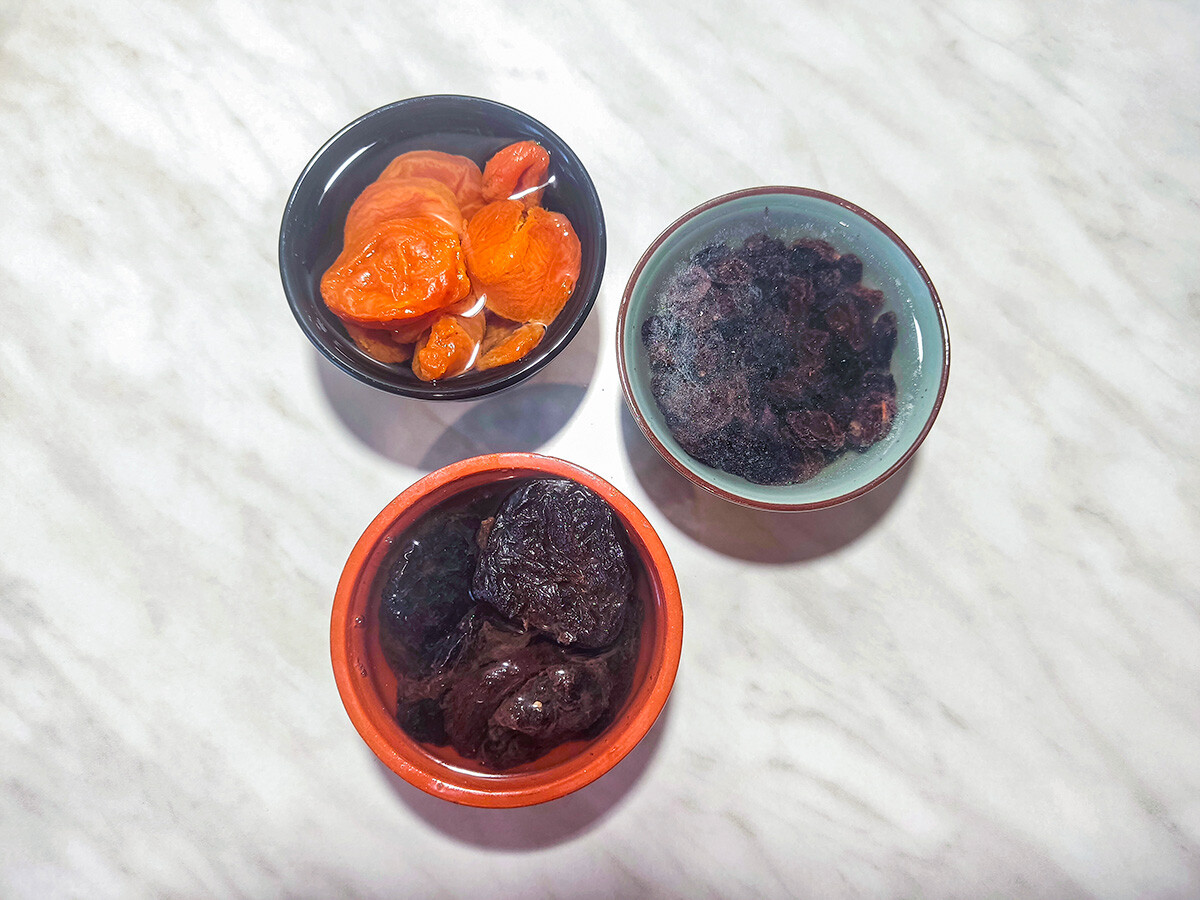
3. Now is the time to mix the ingredients. Add the soaked dried fruits to the baking dish with millet; cut large dried apricots into pieces if needed.
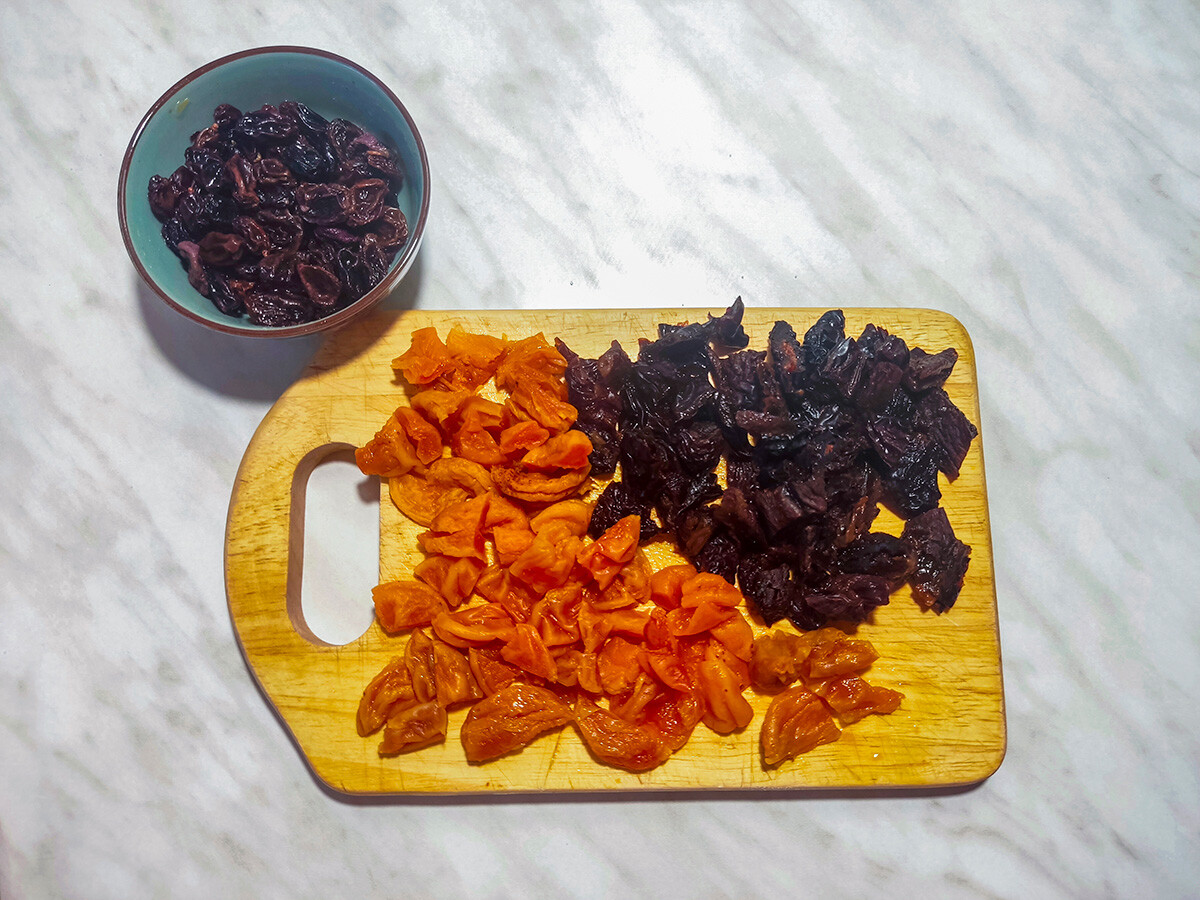
4. Sprinkle salt, sugar (to your taste), and a pinch of vanilla over the millet and dried fruits. If desired, add butter to the mixture. This step is optional but enhances the flavor.

5. Pour the milk directly from the refrigerator over the ingredients in the baking dish. No need to preheat the milk.
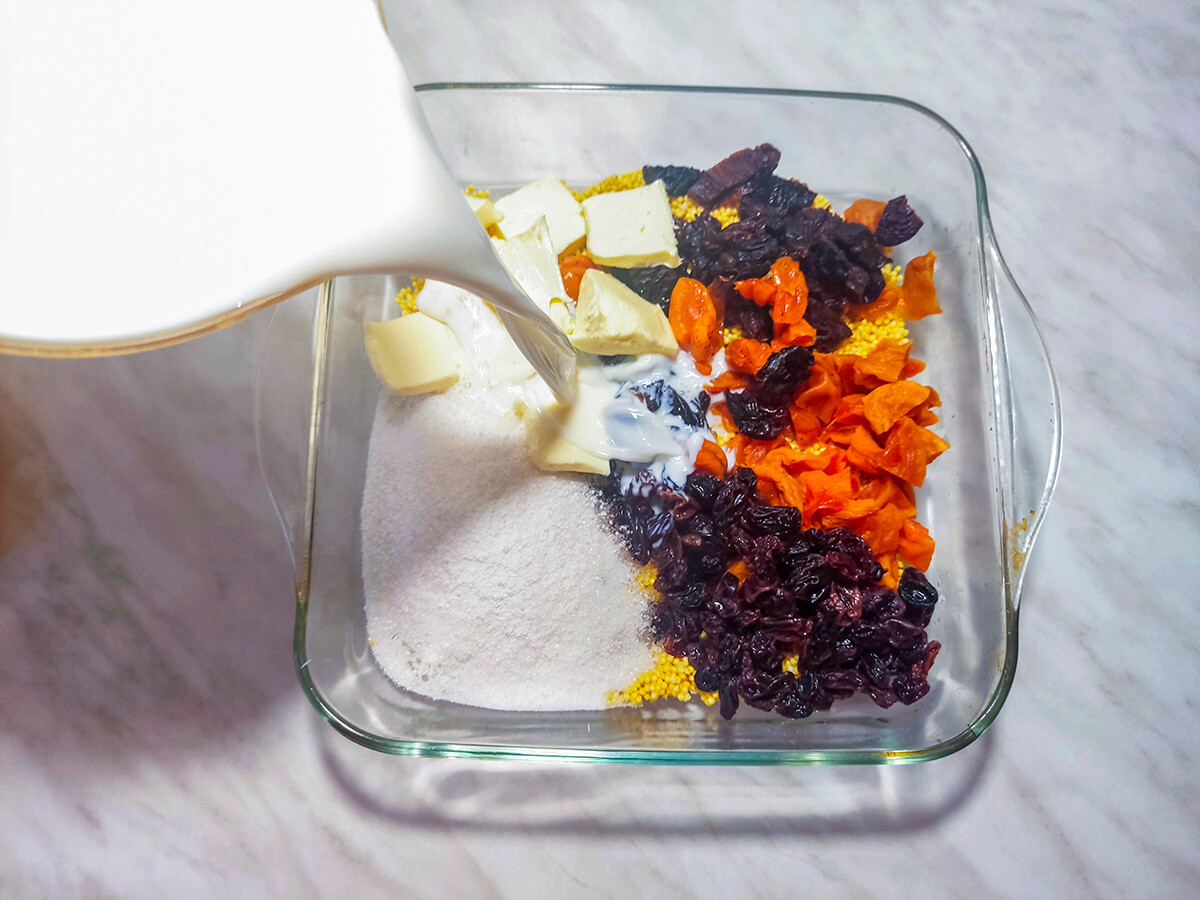
6. Gently mix all the ingredients in the baking dish and place in a preheated oven at 180°C. Bake the millet for approximately 70 minutes. The exact time may vary depending on your oven, but the millet should turn golden, and the edges of the mixture should slightly recede from the walls of the dish.
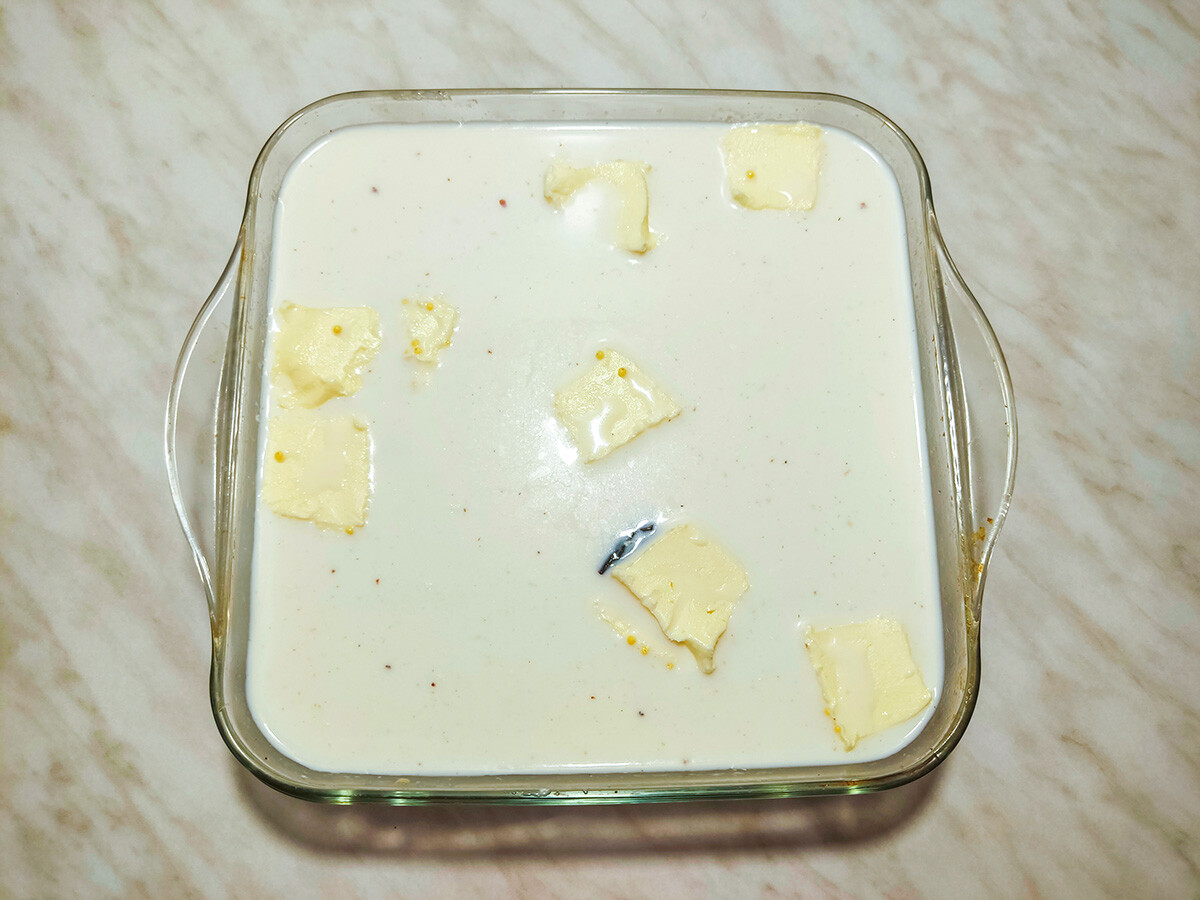
7. To determine if it's done, check to see if there’s a golden crust on top and slightly reduced milk in the middle. When ready, remove the baking dish from the oven and let your pshennik cool.
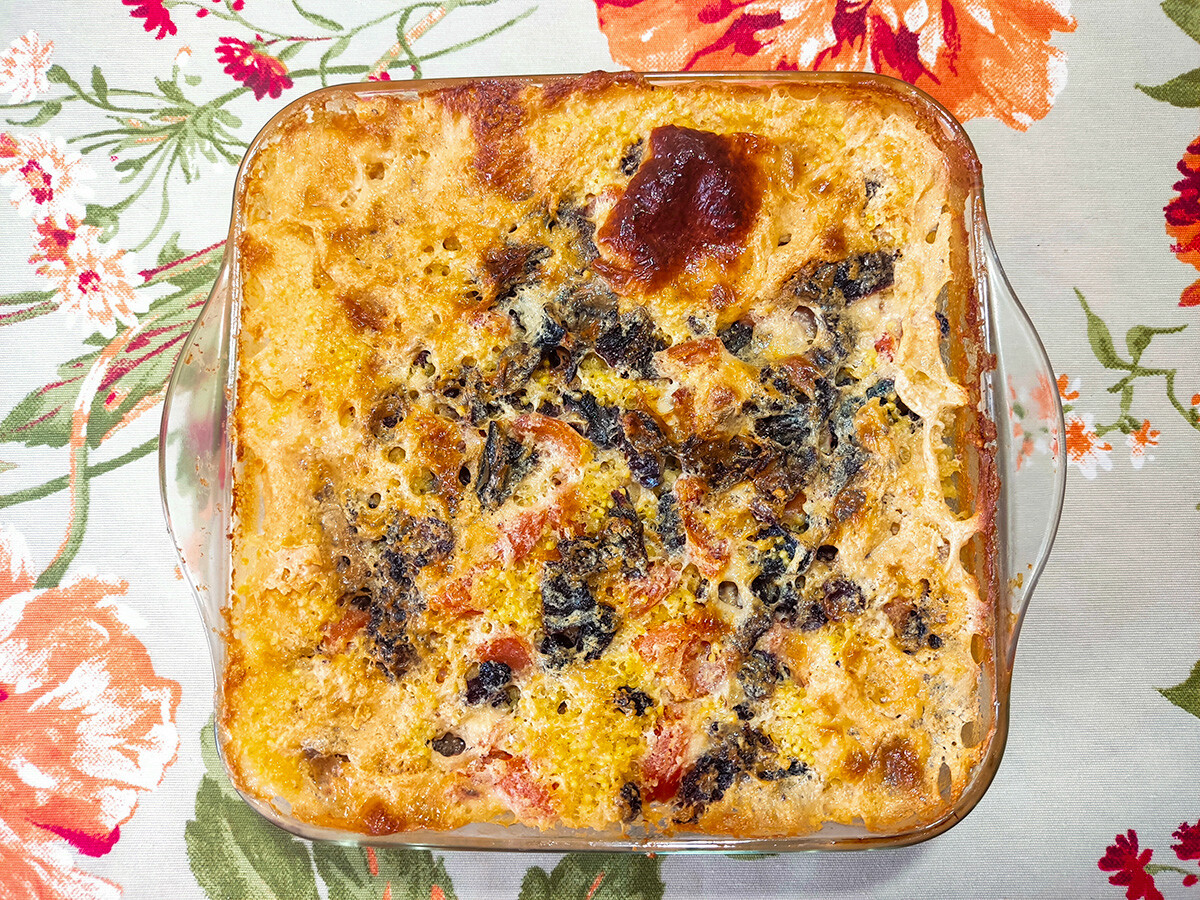
8. Baked pshennik is delightful when either warm or cold. Serve it for breakfast, as a hearty snack, or a delightful dessert.
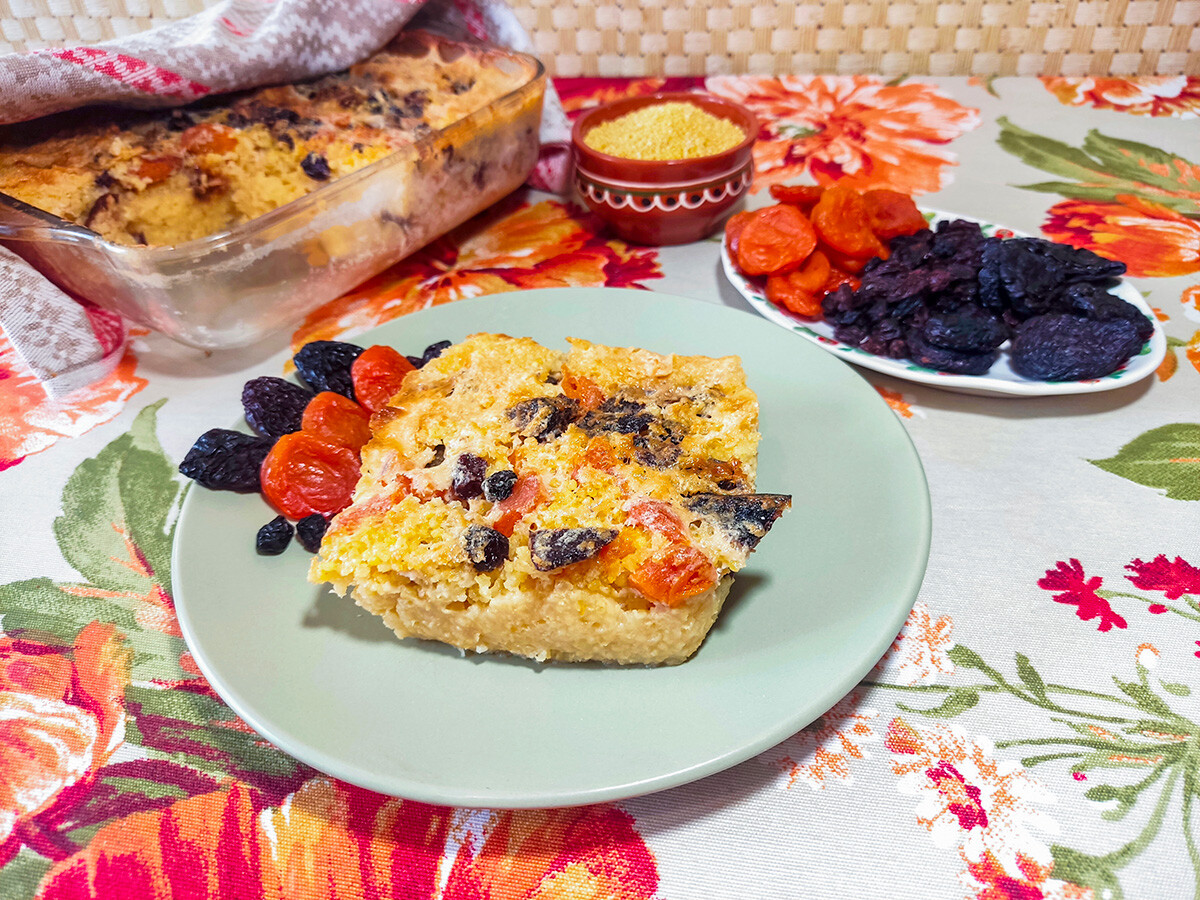
Dear readers,
Our website and social media accounts are under threat of being restricted or banned, due to the current circumstances. So, to keep up with our latest content, simply do the following:
Subscribe to our Telegram channels: Russia Beyond and The Russian Kitchen
Subscribe to our weekly email newsletter
Enable push notifications on our website
Install a VPN service on your computer and/or phone to have access to our website, even if it is blocked in your country
If using any of Russia Beyond's content, partly or in full, always provide an active hyperlink to the original material.
Subscribe
to our newsletter!
Get the week's best stories straight to your inbox